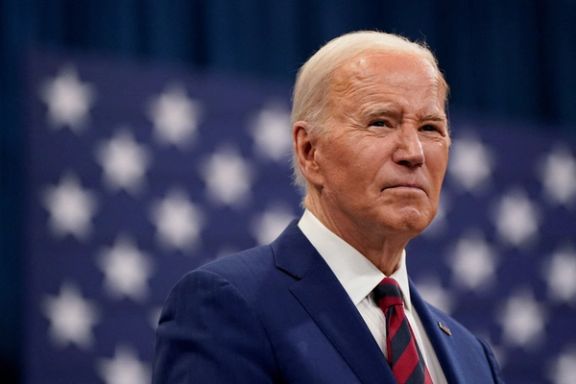Biden delegates Iran sanctions authority as MAHSA Act enforcement stalls

On the second anniversary of Mahsa Amini's death, US President Joe Biden signed a memorandum delegating his authority under several Iran-related laws, including the MAHSA Act, to the Secretary of the Treasury.
The Biden administration was expected to make a determination regarding sanctions on Iran's Supreme Leader and President through an unclassified report by July 23, 90 days after the MAHSA Act was enacted.
The administration has faced criticism from Iranian American activists for not enforcing the Mahsa Amini Human Rights and Security Accountability Act (MAHSA Act) months after its passage, which aimed to sanction Iran's leadership. Although the MAHSA Act became law in April, the required report outlining potential sanctions on key Iranian officials, including the Supreme Leader, has yet to be submitted.
Jason Brodsky, Policy Director at United Against Nuclear Iran, expressed frustration on X (formerly Twitter), stating, "With the second anniversary of Mahsa Amini's murder coming up, many people who spent a lot of time advocating for the law are still waiting for the overdue sanctions."
The MAHSA Act, a bipartisan piece of human rights and anti-terrorism legislation, represents the first instance of the United States imposing sanctions specifically targeting Iranian leadership for domestic repression, crimes against humanity, and international terrorism.
Named after Mahsa Amini, a 22-year-old Iranian-Kurdish woman who died in police custody after being arrested in Tehran for improperly wearing her compulsory hijab, the legislation has become a symbol of the "Woman, Life, Freedom" uprising.
Following Amini's death, over 550 Iranians were killed as the government responded with force to the country's most significant challenge to its legitimacy since the Islamic Republic's founding in 1979. The MAHSA Act mandates sanctions on Iran’s Supreme Leader Ali Khamenei, his Office, his appointees, Iran’s President, and several entities affiliated with Khamenei. It also requires the US President to report to Congress annually on the status of these sanctions, complicating efforts for current and future administrations to lift them unilaterally.
It is not clear if delegating enforcement to the Treasury will result in some action before the November election or until the end of this administration, but in either case, the White House and the State Department have distanced themselves from the issue.
Two years after the protests sparked by Mahsa Amini’s death, a UN Fact-Finding Mission report on Friday highlighted ongoing human rights abuses in Iran, particularly against women. Ahead of the anniversary, Amnesty International also echoed these concerns, condemning the Iranian authorities' brutal crackdown on the "Woman, Life, Freedom" movement. The organization emphasized the ongoing "war on women and girls," noting an intensified crackdown on those defying harsh veiling laws and an increased use of the death penalty to silence dissent, reflecting a broader assault on human rights and systematic impunity for crimes under international law.